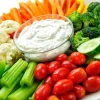Health
Ten steps to prevent breast cancer
Breast cancer is the most common form of cancer among women and cancer is the second leading cause of death in women, following heart disease.
In Uganda, there are environmental factors within our control that can help women minimize their risks for developing breast and other cancers as well as cardiovascular disease and other health issues.
Follow these 10 strategies to not only help prevent breast cancer, but to also protect your current and future overall health.
1) Eat lots of green vegetables, mushrooms, and onions
Following a high-nutrient diet rich in Greens, Beans, Onions, Mushrooms, Nuts and Seeds protects against many chronic diseases, breast cancer included. Green vegetables and mushrooms are the most powerful anti – breast cancer foods.. It is the phytochemical nutrient density and diversity of the diet that offers the most dramatic protection against cancer, not merely the avoidance of meat or fat.
Vegetables and fruits have been consistently associated with both reduced risk of breast cancer and improved survival of breast cancer patients. Cruciferous vegetables (cabbage, broccoli, cauliflower etc.) contain powerful anti-cancer compounds that halt the growth of breast cancer cells and promote excretion of estrogen. Mushrooms block tumor growth and have anti-estrogenic activity-regular consumption of mushrooms-as little as one mushroom per day-has been shown to decrease breast cancer risk by up to 60-70%.
Organosulfur compounds in onions and garlic also prevent the development of cancers by detoxifying carcinogens, halting cancer cell growth, and preventing tumors from obtaining a blood supply.
2) Use one tablespoon of chia or ground flax seed daily
Chia and flax seeds are the richest sources of lignans, phytochemicals with anti-estrogenic effects which also inhibit cell growth in breast tumors.
3) Reduce consumption of animal protein
Consuming more protein and especially dairy products raises blood levels of a chemical called Insulin-like growth factor (IGF-1) – I apologise for the technical terms but more importantly just understand that it is a chemical that has negative effects on the body.
Elevated IGF-1 levels have been associated with increased in breast cancer risk in many studies. Agricultural and industrial carcinogens, such as dioxins, accumulate in fatty tissues of animals that we consume. Humans’ primary mode of exposure to these dangerous chemicals is from meat, poultry, and dairy fat. I advise to consume animal products no more than 3 meals in a week but preferably 1 – 2 meals.
4) Don’t eat fried foods or well-done meats
Steaming, light boiling, and making vegetable soups should be the major extent of cooking. High temperature dry cooking produces potentially carcinogenic compounds-acrylamide (formed in starchy foods like French fries) and certain amines (formed in meats). For example, chicken cooked at high temperatures is known to contain a heterocyclic amine called PhiP, which is a breast carcinogen.
5) Choose supplements without synthetic folic acid
It is very important to maintain healthy vitamin D levels and to take a DHA+EPA supplement (omega 3 rich) daily. Three-quarters of women who have breast cancer are vitamin D deficient, and maintaining sufficient blood vitamin D levels can decrease risk of breast cancer by up to 45%. Greater omega-3 fatty acid consumption is associated with reduced cancer incidence.
EPA has anti-inflammatory effects and DHA has been found to block tumor blood supply and tumor cell growth. I strongly advise all women of childbearing age and above to take a daily vitamin D and EPA/DHA omega 3 supplement for at least 3 months in a year.
6) Exercise at least three hours a week and maintain a lean body with little body fat
An analysis of 73 different studies concluded that women with high levels of physical activity reduced their risk of breast cancer by 25%.Maintaining a healthy weight is also extremely important, since 17% of breast cancer cases have been attributed to obesity alone. Contact Wellcare if you would like help in losing weight.
7) Do not drink or seriously limit alcohol consumption
More than fifty studies have been conducted on the influence of alcohol on breast cancer risk. Even light drinking (one or fewer alcoholic drinks per day) is associated with increased risk; for example, data from the Nurses’ Health Study suggested that women consuming 3-6 alcoholic drinks weekly increased their breast cancer risk by 15% compared to non-drinkers.1-2 In breast cancer survivors, drinking 3-4 alcoholic beverages per week increased the risk of recurrence by 34%.3
8) Do not smoke
Breast carcinogens have been identified in cigarette smoke, and they are known to enter the bloodstream via the lungs and travel to breast tissue, putting smokers at increased risk.
9) Limit your exposure to estrogen
Cumulative exposure to estrogen is known to be a risk factor for breast cancer. As such the use of higher-dose estrogen-containing contraceptives is known to be associated with increased risk.
Women can also be exposed to estrogen via production by excess fat tissue, or environmental sources such as endocrine-disrupting chemicals (like BPA and phthalates). BPA is a chemical that is found in many plastics. (That is why many baby bottles will have the word BPA free.)
Maintaining a healthy weight when possible helps to maintain healthy estrogen levels. In addition, a vegetable-based, fiber-rich diet reduces circulating estrogen levels, because fiber binds up estrogen in the digestive tract, accelerating its removal from the body.
Lastly women who have used or are using hormone replacement therapy (HRT) are at risk, and that risk increases with increasing duration of HRT. HRT is usually given to support women struggling with the uncomfortable symptoms of menopause.
10) Have babies and then breastfeed them as long as you can
As funny or controversial as this may sound, having children before the age of 24 and having multiple children are both protective against breast cancer4. Breastfeeding also contributes to reducing the risk, in part by reducing estrogen exposure.
The longer the duration of breastfeeding, the more the protection. It is recommended to exclusively breastfeed for 6 months and then continue breastfeeding until at least 18 months but preferably 24 months. Breastfeeding will help protect breasts but will also be the best gift you can give your baby.
Comments

























